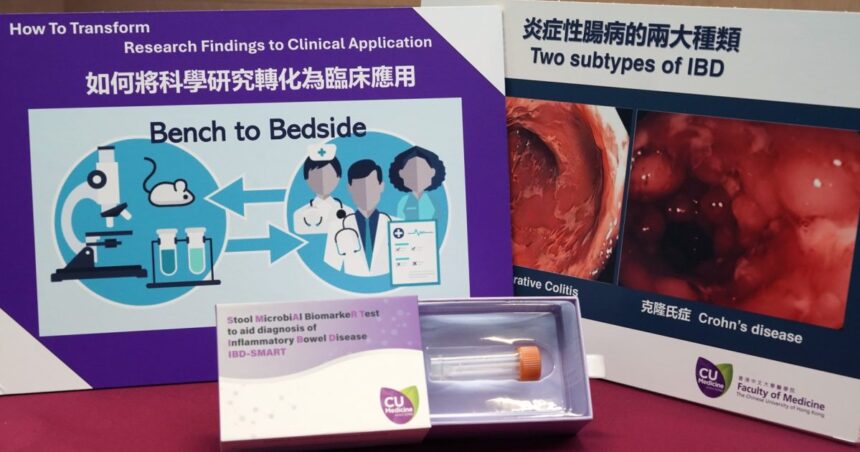The present invention can effectively distinguish common chronic intestinal diseases.
The Faculty of Medicine at The Chinese University of Hong Kong (CUHK) (CUHK Faculty of Medicine) has launched a non-invasive test for early diagnosis and intervention of gastrointestinal inflammation.
The university says the invention can effectively differentiate between common chronic intestinal diseases and has the potential to minimize the need for endoscopy.
“The incidence of IBD (inflammatory bowel disease) is rising rapidly in Asia, and the number of patients in China is expected to exceed 1.5 million by 2025,” said Siew Ng, director of the Microbiota I Center.
Delayed treatment may lead to chronic inflammation and ulceration of the digestive tract, and severe cases may require removal of the damaged intestine.
The research team used nearly 6,000 stool samples collected from different regions and ethnicities to develop the world’s first droplet digital polymerase chain reaction (ddPCR) test for selected unique bacterial species.
The test can differentiate between irritable bowel syndrome (IBS) and IBD and will be available for clinical use in 2027.
“We found that the intestinal tract of IBD patients contains more toxin-producing bacterial genes, such as adherent invasive Escherichia coli and Proteus mirabilis, and lacks a variety of bacterial species with anti-inflammatory functions.” said the Department of Internal Medicine and Therapeutics, Faculty of Medicine, CUHK.
To translate the findings into clinical applications, the research team developed multiplex ddPCR technology to facilitate rapid and effective IBD diagnosis. Validation in independent cohorts and public datasets showed a sensitivity of 88% and a specificity of 89% for IBD diagnosis.









